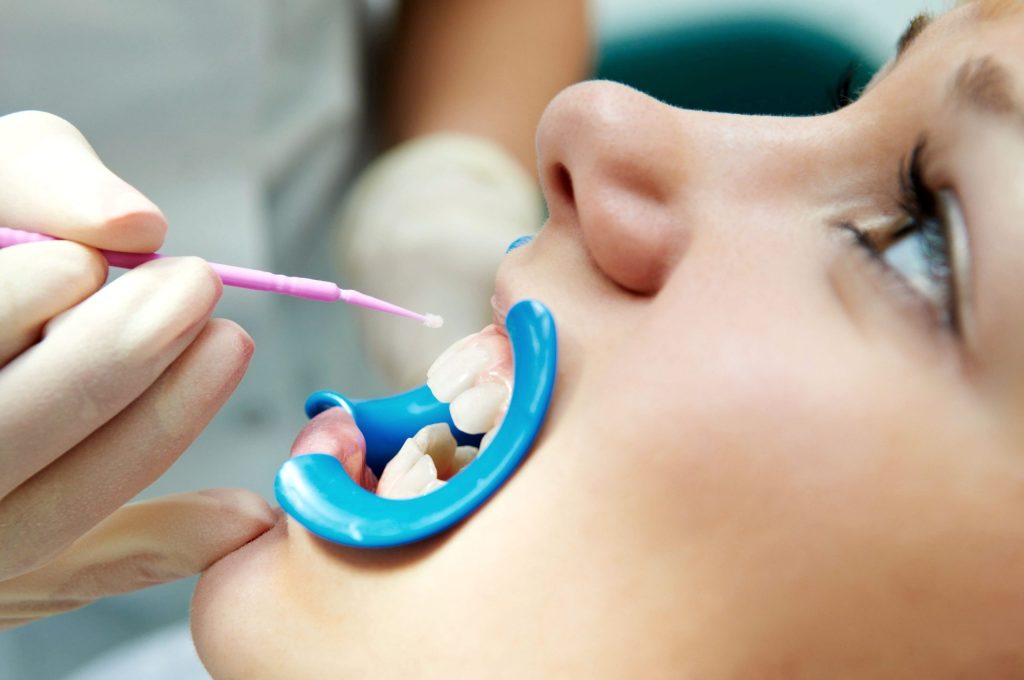1. Introduction
Teeth are an essential part of the human digestive system. Not only do they help us chew food, but they also play a significant role in our appearance and social interactions. Good oral health not only affects the appearance and function of teeth but also has a profound impact on overall health. In recent years, research has increasingly shown that there is a close relationship between diet and oral health. Poor dietary habits, such as high sugar and high acid intake, are often the root cause of dental problems, leading to cavities, gum disease, and other oral conditions. On the other hand, a scientifically balanced diet can effectively promote tooth health and prevent tooth decay and other oral issues.
This article will explore how to protect your teeth through diet, analyze the impact of different foods on oral health, and provide daily dietary recommendations for oral care. By adopting healthy eating habits, individuals can protect their teeth from the inside out and maintain optimal oral health.
2. The Relationship Between Diet and Oral Health
2.1 Tooth Structure and Function
Teeth consist of several parts, including the enamel, dentin, and pulp. The enamel is the hardest substance in the human body and serves as the outer protective layer of the tooth. It plays a vital role in shielding the teeth from external harm. However, enamel is not invincible. Over time, acid from food and beverages can erode the enamel, leading to dental problems such as cavities and tooth sensitivity.
The health of your teeth is closely linked to the nutrients provided by your daily diet, especially calcium, phosphorus, and fluoride. Calcium and phosphorus are essential for the structural integrity of the enamel, while fluoride helps strengthen tooth enamel and protect it from decay.
2.2 The Impact of Dietary Habits on Teeth
Dietary habits have a direct impact on the health of your teeth. Certain food types, such as those high in sugar and acid, as well as the texture of the foods we consume, can significantly affect tooth health.
2.2.1 Sugar and Its Effect on Teeth
Sugar is one of the primary causes of tooth decay. Oral bacteria feed on sugar, and as they metabolize it, they produce acidic substances that gradually dissolve tooth enamel, leading to cavities. Foods and drinks that are high in sugar are especially dangerous because they can easily form plaque on the surface of teeth, promoting the growth of harmful bacteria and causing tooth decay. Therefore, reducing sugar intake—especially by avoiding sugary foods and beverages—is crucial for maintaining oral health.
2.2.2 Acidic Foods and Their Effect on Teeth
Acidic foods and drinks (such as citrus fruits, orange juice, and carbonated beverages) can cause damage to tooth enamel. The acid in these substances can demineralize the enamel, weakening its structure. Frequent consumption of acidic foods can lead to enamel erosion, making teeth more vulnerable to cavities and sensitivity. It’s essential to consume acidic foods in moderation and avoid them right before bedtime or after meals. If you drink acidic beverages, consider using a straw to reduce direct contact with your teeth.
2.2.3 Soft vs. Hard Foods
The texture of the foods you eat also influences tooth health. Soft foods tend to leave food particles and plaque on teeth, which, if not cleaned properly, can promote bacterial growth and plaque formation. On the other hand, hard foods stimulate the chewing function, increase saliva production, and help clean the surface of the teeth. For example, foods like nuts, apples, and carrots not only provide nutritional benefits but also promote oral health by helping to clean teeth and massage the gums.

3. How to Protect Teeth Through Diet
3.1 Eating the Right Foods to Provide Nutrients for Teeth
3.1.1 Calcium, Phosphorus, and Vitamin D
Calcium and phosphorus are essential components of tooth structure, helping to maintain the strength and hardness of the teeth. Good sources of calcium and phosphorus include dairy products, fish, legumes, and leafy green vegetables. These nutrients not only strengthen the teeth but also improve their ability to resist acids. Vitamin D plays a crucial role in helping the body absorb calcium, so adequate vitamin D intake is necessary to maintain healthy teeth. Sunlight, fatty fish, and fortified foods are great sources of vitamin D.
3.1.2 Fluoride-Rich Foods
Fluoride is an essential element that strengthens tooth enamel and prevents tooth decay. Fluoride helps remineralize teeth, repairing minor damage caused by acidic substances. Sources of fluoride include fluoridated water, toothpaste, and certain foods like tea and seafood. Proper fluoride intake can improve the tooth’s resistance to decay, keeping them healthy and strong.
3.1.3 Vitamin C for Gum Health
Vitamin C is critical for maintaining healthy gums. A deficiency in vitamin C can lead to gum bleeding, swelling, and even gum disease. Foods rich in vitamin C, such as citrus fruits, strawberries, tomatoes, and peppers, help boost gum health and support the immune system. Vitamin C also helps repair tissues that may have been damaged by oral health problems, such as gum inflammation or bleeding.
3.1.4 Fiber-Rich Foods
Fiber-rich foods benefit not only the digestive system but also the teeth. Fruits, vegetables, and whole grains help stimulate saliva production, which helps to wash away food particles and neutralize acids. Fiber also encourages healthy gums and reduces the buildup of plaque, making it essential for oral hygiene.
3.2 Avoiding High-Sugar Diets and Reducing Sugar Intake
Sugar is one of the most significant contributors to tooth decay. Oral bacteria feed on sugar and produce acids that damage tooth enamel. To protect your teeth, it is essential to control your sugar intake, particularly by reducing the consumption of sugary snacks, candies, and sugary beverages. Additionally, it’s important to avoid frequent sugar consumption, as each sugar exposure increases the risk of acid attacks on your teeth. If you do indulge in sugary foods, it’s best to consume them with meals and brush your teeth afterward to limit the damage.
3.3 Limiting Acidic Foods and Beverages
Acidic foods and beverages can erode tooth enamel over time, weakening the structure of the teeth. It is important to limit the intake of foods and drinks with high acidity, such as citrus fruits, carbonated beverages, and sour candies. If you consume acidic foods, try to eat them with other foods to reduce their impact on your teeth. Additionally, drinking water immediately after consuming acidic foods can help neutralize the acids and reduce the damage to enamel.
3.4 Drinking Water to Keep Your Mouth Moist
Water is the most natural and effective way to keep your mouth clean. Drinking water throughout the day helps wash away food particles and bacteria, reducing plaque buildup and preventing tooth decay. It also helps maintain adequate saliva levels in the mouth, which is essential for neutralizing acids and providing protection for tooth enamel.
3.5 Eating Hard Foods to Promote Natural Cleaning
Chewing hard foods, such as raw vegetables, apples, and nuts, can help stimulate saliva production and naturally clean the surfaces of your teeth. Saliva helps wash away food debris and neutralize acids that can erode enamel. These hard foods also help remove plaque and food particles from between the teeth, which can reduce the buildup of bacteria and decrease the risk of cavities and gum disease.
4. Developing Healthy Dietary Habits
To effectively protect your teeth, it is essential to develop and maintain good dietary habits. Here are some tips for cultivating healthy eating habits:
4.1 Eat Regular Meals and Avoid Frequent Snacking
Frequent snacking can expose your teeth to prolonged periods of food and drink, which can lead to plaque buildup and increased risk of cavities. To protect your teeth, it’s important to eat regular meals and avoid constant snacking, especially on sugary or acidic foods. Eating meals at set times helps control plaque formation and gives your teeth a break from constant exposure to food.
4.2 Drink Water Instead of Sugary Beverages
Avoid sugary drinks such as sodas, juices, and energy drinks, as they can contribute to tooth decay. These beverages contain high amounts of sugar and acid, both of which can damage tooth enamel. Instead, choose water or low-sugar beverages, which will help keep your teeth clean and hydrated.
4.3 Maintain a Balanced Diet to Ensure Comprehensive Nutrition
Eating a balanced diet is vital for overall health and dental health. Ensure that your diet includes a variety of foods that provide all the necessary vitamins and minerals, including calcium, phosphorus, vitamin D, and vitamin C. By consuming a wide range of nutritious foods, you help support the overall health of your teeth and gums.
5. Conclusion
Tooth health is closely linked to our dietary habits. A healthy diet can effectively prevent tooth decay, gum disease, and other oral issues while promoting the appearance and function of your teeth. By limiting sugar intake, eating the right foods, avoiding excessive acidic foods, staying hydrated, and incorporating natural cleaning foods into your diet, you can protect your teeth from the inside out. We hope this article helps you understand the importance of diet in oral health and encourages you to develop healthy eating habits that will keep your teeth strong and beautiful for years to come.













































Discussion about this post